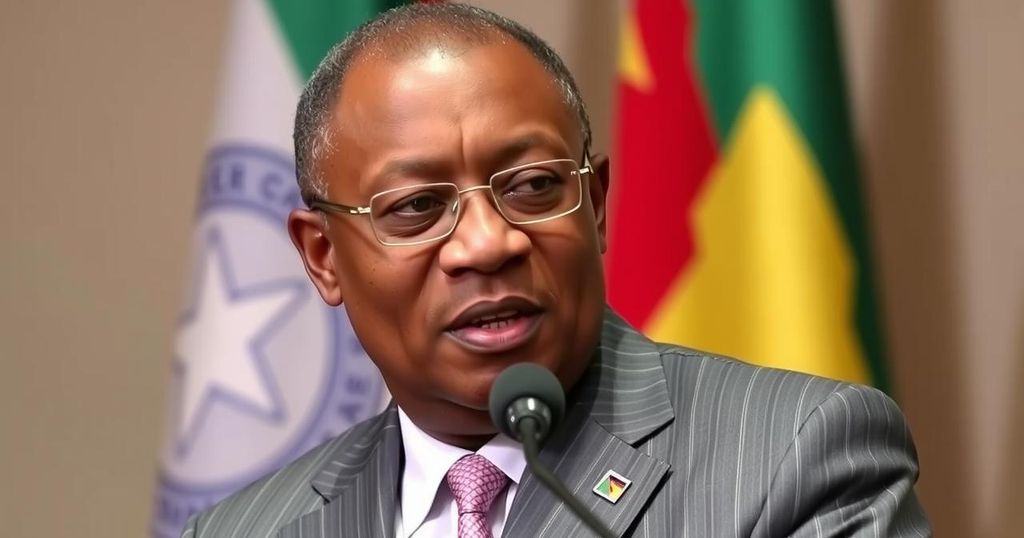Daniel Chapo Takes Office as Mozambique’s President Amid Election Controversy
Daniel Chapo was sworn in as Mozambique’s president following a disputed election marked by violence leading to 300 deaths. While he pledged to promote national unity, opposition claims allegations of rigging point to a precarious political climate as his presidency begins.
Daniel Chapo has officially taken the oath of office as the President of Mozambique, marking the continuation of the Frelimo party’s dominance in the nation for five decades. This inauguration comes in the wake of significant unrest and violence following a disputed election, which according to non-governmental organizations, has resulted in over 300 fatalities. In his inaugural address, President Chapo emphasized his commitment to fostering national unity, despite widespread allegations from opposition parties regarding electoral fraud.
Opposition candidate Venancio Mondlane has vocally protested the legitimacy of the October elections, asserting that the process was manipulated to ensure Chapo’s victory. As Mozambique struggles with the ramifications of the election turmoil, the focus now shifts to whether Chapo can achieve his stated goals of unity and stability in a politically fragmented environment.
Mozambique’s political landscape has been fraught with tension, particularly following a closely watched election process that many viewed as marred by irregularities. The Frelimo party, which has been in power since Mozambique’s independence, faces increasing scrutiny from opposition groups who demand transparent governance. Amid these challenges, Chapo’s presidency begins at a pivotal juncture in the nation’s history, with calls for peace and reconciliation resonating loudly.
While the unrest following the election has overshadowed the ceremonial aspects of the inauguration, the longer-term implications of Chapo’s leadership will depend on his ability to address both social discontent and economic issues exacerbated by political instability. The international community will also be closely monitoring developments in Mozambique in the weeks and months to come, with hopes for a peaceful resolution to the current crises.
The political situation in Mozambique has been unstable following a recent election that has raised serious concerns regarding its legitimacy. The Frelimo party’s unbroken rule for the past fifty years has been contested, particularly by the opposition, which argues that the elections in October were marked by irregularities and potential fraud. The violence that ensued in the aftermath of the election has drawn significant attention from both local and international observers, heightening calls for accountability and reform in the electoral process. Daniel Chapo’s ascension to the presidency represents both continuity in leadership and a challenge to address deep-seated political grievances within a divided society.
In summary, Daniel Chapo’s inauguration as President of Mozambique comes amid significant political turmoil and allegations of election fraud. His pledge to devote energy to promoting national unity must be matched by tangible actions to mitigate the unrest and foster reconciliation. The ongoing challenges within the political landscape will test Chapo’s leadership as he navigates both internal and external expectations for a more stable and just governance in Mozambique.
Original Source: www.barrons.com




Post Comment